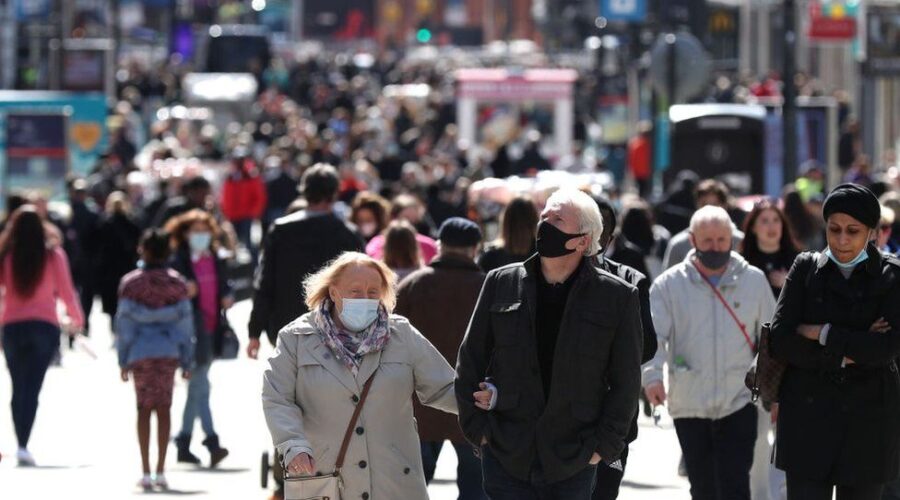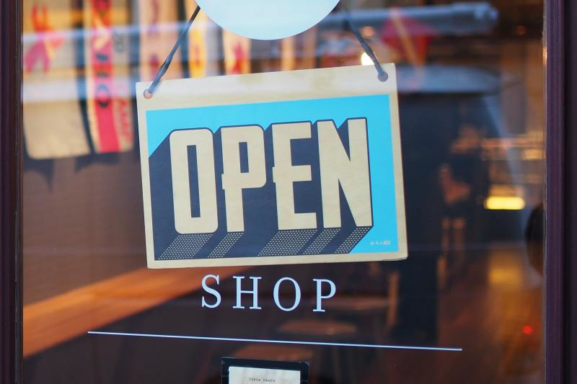2020 The Good and The Ugly
This year has changed our future for many reasons. As our VP of Brand Marketing at Listeo, I spend a lot of time thinking about the broader trust landscape and, as I reflect on the past 12 months, it’s clear that humanity’s relationship with trust has changed in 2020.
At the end of a year that brought events that will define a lifetime, I’ve been looking back at some of the biggest changes we saw around trust and what they mean for the future of trust at large.
Business’ values were put to the test as consumer choice reigned supreme
One of the more positive outcomes of 2020 was the acceleration of choice for consumers. Nearly a decade’s worth of ecommerce progress was accomplished in just one year, giving consumers the power to buy literally anything from the safety of their homes. And with consumer priorities having shifted this year to making financially smart purchases over buying image-driven brands, every purchase has become more considered.
As a result, this was a year where companies faced the ultimate stress test. Consumers simultaneously demanded to know how businesses were responding to COVID-19, what was their stance and historical record on social justice initiatives, and what was their political and ideological positioning. Businesses who shied away from answering the tough questions and addressing their shortcomings were often forsaken for those that would.
Edelman’s Brand Crisis Report found that in 2020, 63% of consumers chose to engage with or abandon a brand based on its stand on societal issues, while 54% believe that brands should speak out or take a stand on social justice issues. The same report found that 44% of consumers started using a new brand because of the innovative or compassionate way they have responded to the virus outbreak.
These three indicators: humanitarian compassion, social justice action, and political outspokenness are what consumers have used to define what makes a brand trustworthy in 2020. With small and large businesses closing at an unprecedented rate, brands must establish and live up to their values if they want to establish long term trust with consumers.
Scams were at an all time high
The rapid transition to online shopping and payments, rampant misinformation about COVID-19, and a desire to open wallets for community support and social justice issues have created unprecedented opportunities for would-be scammers.
In the UK, over £200m was lost to authorised push-payment fraud the first half of this year. In April, London’s Metropolitan Police and the National Cyber Security Centre launched the Suspicious Email Reporting Service which received 1.7 million reports of suspicious emails in the first six months. In the US, Americans have lost $145 million to COVID-related fraud.
Events like COVID-19 and Black Lives Matter fundraising are seen as opportunities for bad actors to take advantage of unsuspecting and vulnerable consumers. With more and more purchase activity occurring online, inexperienced consumers are exposed to new digital experiences every day, increasing the risk of being scammed and, over time, creating a culture of mistrust.
Knowing who to trust has become more difficult than ever in 2020 and consumers must be more scrupulous than ever before when it comes to protecting themselves against scams. Increasingly, consumers will need to look for trust signals to indicate a digital experience is safe.
Traditionally trustworthy institutions are losing trust rapidly
Diminishing trust in the media and in government is not new, however 2020 has intensified a growing distrust of these traditional institutions.
This year, less than half of Britons trusted the government to provide accurate information on the pandemic. In the US, six in 10 Americans have “not very much”, or no trust and confidence in the media to report the news “fully, accurately, and fairly.” According to a global study by Reuters, 50% of consumers are concerned about what is true or false on the internet when it comes to news, and domestic politicians are the single most frequently named source of misinformation.
Meanwhile, consumers’ concerns about the power of big tech dominance was exacerbated by a fraught US election cycle and the rampant and rapid spread of misinformation through their social networks.
In the US, many Americans do not trust social media companies to make the right decisions about what content should or should not be allowed on online platforms, and 77% believe major internet and technology companies like Facebook, Google, Amazon and Apple are too powerful.
However, this does seem to be a year where governments are finally trying to crack down on powerful tech companies. In December, both the EU and the US took steps to limit their power. The EU’s Digital Markets Act proposes new antitrust legislation that enables smaller tech companies to be competitive in large EU markets. In the US, the FTC has filed a suit against Facebook for monopolization and anticompetitive conduct.
But even with meaningful efforts to reign in big tech, trust value is depreciating across government, media, and big tech, and consumers will look to alternative sources of trustworthiness. However, while we collectively lose trust in these institutions, Pew Research found that 86% of consumers in the US believe it is possible to improve peoples’ confidence in each other. It’s an incredibly revealing fact about human nature that in a year when we are all forced to separate, and a simultaneous collective decline of trust in our institutions, we look to our friends, family, and peers.
There is much to be hopeful about in 2021: COVID-19 vaccines are being distributed meaning families and loved one will soon be reunited, the postponed 2020 Olympic Games will (hopefully) take place in July, and we can look forward to enjoying the movies, vacations, and weddings that were postponed in 2020.
As we emerge from a dark year and rebuild our new and changed world, many people, business, and institutions will look to rebuild trust. It’s my hope that a year of hard lessons learned and trust lost will be followed by a year of optimism and rehabilitation, and that we find trust in one another.



